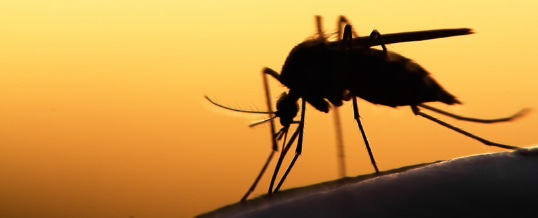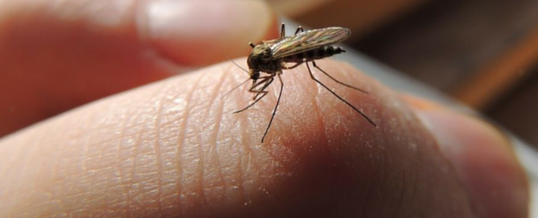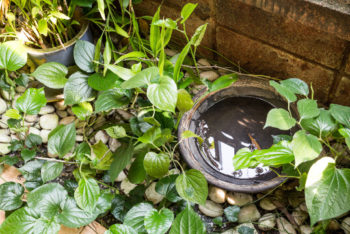With the weather warming up, many of us are looking forward to getting back out in our yards. You may be daydreaming of cooking on the barbeque, lounging by the pool, playing on the lawn, or having drinks on your patio.
But nothing can ruin all that summer fun faster than having to beat off a swarm of mosquitoes.
Mosquito control is important, and not just for preventing those annoying bites. Read on to learn more about why you should keep your mosquito population under control and how a mosquito control service can help.
Meet the Mosquito
Before we dive into how to manage mosquito control, let’s talk about the mosquito.
There are more than 3,500 known species of mosquitoes worldwide, about 200 of which are native to the United States. Of these 200, twelve species of mosquitos are capable of spreading diseases to humans.
Mosquitoes are small, blood-sucking insects, though only the females drink blood, while the males feed on plant nectar. When mosquitoes feed on prey, they inject their saliva into the victim to act as an anticoagulant, keeping blood flowing without clotting.
This saliva injection is how mosquitos spread the diseases they carry.
Mosquito Breeding Cycles
Before you try to get rid of them, it’s important to understand how they work. The mosquito mating pattern is quite unique since females only need to encounter a male once to mate and can produce eggs up to five times in a summer.
After a female mosquito mates, she rests for a few days before finding an ideal spot to lay her eggs. They prefer to lay eggs in water, marshes, swamps, or any location with high levels of moisture.
As baby mosquitos hatch, they become larvae and mature into pupae before becoming an adult mosquito. Their lifecycle can depend on mating, species type, weather conditions, and more.
Mosquito Concerns
Naturally, one of the biggest concerns with mosquito infestations is their potential for carrying disease. Mosquitoes can transmit more than a dozen different diseases, with one of the most dangerous being malaria.
Each year, almost 700 million people get mosquito-borne diseases, and one million people die from them.
While malaria is one of the most well-known mosquito-borne diseases, these insects can also spread West Nile virus and yellow fever. There are several types of encephalitis, a dangerous condition in which your brain becomes inflamed, that you can catch from mosquitos.
Mosquitos also spread dengue fever, Zika fever, chikungunya, and several other dangerous fever diseases.
Protect Yourself First
When you’re trying to control mosquito populations, one of the first things you should do is protect yourself. Although mosquitos can feed on other prey and plants, feeding on blood allows them to produce more eggs. By cutting off their food supply, not only do you help to reduce mosquito populations, but you also avoid annoying bites.
Any time you plan to be outside, especially for extended periods of time, use an EPA-approved insect repellant. This is most important at dusk and dawn, when mosquitoes are most active, and when you’ll be around large bodies of standing water.
Wearing long sleeves, pants, shoes, and socks can also help prevent mosquito bites.
Get Rid of Standing Water
Mosquitoes lay their eggs in standing freshwater, so one of the keys to controlling their population is to reduce these breeding grounds. In nature, they will often breed in lakes, ponds, or even puddles that stick around for long enough.
But they can also breed in areas as small as a rain-filled bucket or an overturned kiddie pool.
Try to get rid of any standing water in your yard or surrounding your property as soon as possible, especially in the summer months. Dump out buckets, pack away pools with no filtration systems, and keep gutters clear and in working order. You may also need to fill low spots in your yard that gather water or set up more efficient drain systems.
Use Fans
It may sound strange, but taking the simple measure of setting up fans around your home and yard can help deter mosquitoes. Mosquitoes have light, spindly bodies, and each one weighs only 5 milligrams, about as much as a grain of sand.
This makes it very hard for them to fly against any sort of moving air current.
Set up oscillating fans around the area you plan to spend time in when you’re outside, or even in your home. For one thing, in the summer (when mosquitoes are most active), these fans will help keep you and your family more comfortable. But the moving air will also make it impossible for mosquitoes to get near you to bite you.
Set Mosquito Traps
Another great way to reduce mosquito populations around your yard is to set up mosquito traps. These traps imitate the scents and visual cues (heat, etc.) that draw mosquitoes to humans. They then trap them on a sticky surface, zap them with electricity, or simply vacuum them up.
You’ll need to set up your mosquito trap in a shady area of your yard, away from any fans or other repellants you have set up. You may also want to experiment with placing the traps in different areas to find the most effective spots.
If you’re the crafty sort, you can even make your own mosquito trap at home.
Burn Citronella Candles
If you’d like to add a little more ambiance to your outdoor living space and avoid mosquitoes at the same time, you can light special candles. Citronella candles can add the charm of flickering candlelight, as well as repelling mosquitoes. You can also find citronella lanterns if you prefer a steadier light source or use them on camping trips.
Citronella is an essential oil distilled from an Asian grass plant known as lemon balm. Aside from helping to repel mosquitoes and other insects, citronella oil is believed to help boost your mood and fight fatigue.
It is also a popular ingredient in perfumes and food flavorings, so your yard will smell fantastic and be mosquito-free.
Treat Ponds and Pools
If you have a pool in your backyard, it can automatically become a breeding ground for mosquitoes. This is especially true for ponds and pools that don’t have circulating filtration systems.
Luckily, you can keep your pool or water feature without setting up a mosquito nursery in your backyard.
You can buy larvicide products that will kill any mosquito larvae laid in your pool or pond. You may want to look for a product that has BTI, a naturally occurring, non-toxic bacterium that kills mosquito larvae, in it.
You should also consider covering your pool or pond at night or when it isn’t in use to keep mosquitoes from laying eggs there.
Keep Your Lawn Mowed
You might be surprised to learn that keeping your lawn neatly manicured can help to reduce mosquito populations in your yard. Mosquitoes like to rest in cool, damp areas, where they’re less likely to get baked by the sun. Overgrown grass and weeds provide them the perfect shade they need during the hottest parts of the day.
Keeping your lawn mowed can remove these shady refuges and keep mosquitoes out of your yard.
You should aim to cut your grass when it’s about one-third higher than you want it to be. How often you need to mow will depend on everything from how much rain you’ve gotten to what kind of grass you have.
Plant Mosquito-Repellant Plants
While you’re working on your landscaping, you may also want to consider putting in some new plants. There are several plants that are natural mosquito repellants. Having these around your yard, especially close to decks, patios, and pools, can help to keep your yard a mosquito-free zone.
You won’t be surprised to learn that lemon balm is at the top of the list of mosquito repellant plants, as is lemongrass. Lavender, marigolds, and geraniums can all add some color and beauty to your yard while keeping mosquitoes away.
Basil, garlic, rosemary, peppermint, and sage can give you delicious fresh herbs to cook with while repelling unwanted insects.
Hire a Mosquito Control Service
One of the best ways to manage the mosquito population in your yard is to hire a professional Memphis mosquito control service. These professionals have the know-how and the tools to be able to eliminate mosquitoes safely and effectively. Best of all, you don’t have to do anything but sit back and enjoy your mosquito-free yard.
Mosquito control services know how to kill mosquitoes at all stages of life, from eggs to adults. They also know how to safely handle the chemicals that are needed to deal with serious mosquito infestations.
Using these chemicals incorrectly could be very dangerous for the wildlife in your yard, as well as pets and children.
Backyard Basics for Memphis Mosquito Control
Here’s our quick recap of how to keep mosquitoes out of your yard this season. Removing potential mosquito-breeding sites from your backyard is critical to reducing the number of mosquitos in your yard.
- Dump water in cans, buckets, or anything that can hold rainwater. Scrub the sides to make sure eggs fall on the ground so they can’t hatch.
- Keep drainage areas clear of leaves or trash so water flows away from your home (this includes gutters).
- Fix leaky faucets.
- Change the water in bird baths and drip trays in flower pots often.
- Cover trash containers to keep out water.
- Turn over boats or kayaks.
- Check tarps over firewood or swimming pools for pooling water and larvae.
- Repair or replace screens over windows and doors.
- Keep grass and shrubs trimmed short. Mosquitos like to hide away from the sun.
Find the Best Mosquito Control Service for You
Keeping mosquito populations under control is very important for a variety of reasons. Not only are bites itchy and annoying, but mosquitoes can also carry several very dangerous diseases.
Make sure to eliminate any standing pools of water, set up fans, and call a mosquito control service to handle any mosquitoes living in your yard.
If you’re in or near Memphis and are looking to find the best pest control service around, check out the rest of our site at Inman-Murphy. We can help you get rid of termites, bedbugs, roaches, spiders, wasps, mosquitoes, and more.
Contact us today and start living in a pest-free home the easy way.





